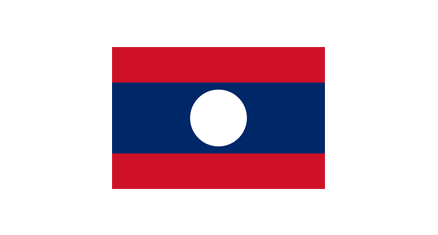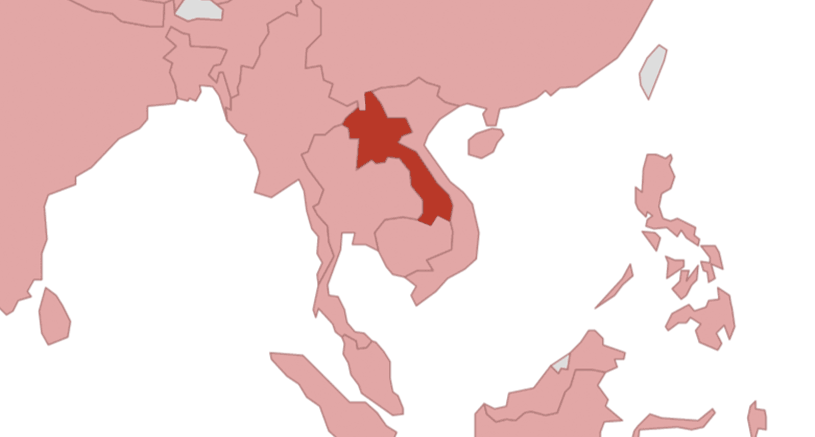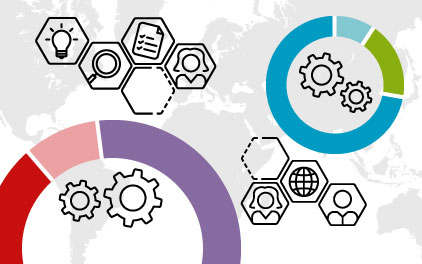

- RURAL DEVELOPMENT
- SUSTAINABLE INFRASTRUCTURE
- SOCIAL DEVELOPMENT
- GOVERNANCE AND DEMOCRACY
- ENVIRONMENT AND CLIMATE CHANGE
- ECONOMIC DEVELOPMENT AND EMPLOYMENT
Lao People’s Democratic Republic
GIZ local staff
National employees: 203
International employees: 31
Development workers: 2
Integrated experts: 2
(as at: 31.12.2024)
The Deutsche Gesellschaft für Internationale Zusammenarbeit (GIZ) GmbH has been working in Laos (offi-cially known as the Lao People’s Democratic Republic) on behalf of the German Government since 1993.
In the past twenty years, Laos has experienced an expanding economy and steadily increasing per capita income. However, the economic situation has deteriorated since 2020. The consequences of the COVID-19 pandemic have exacerbated existing structural weaknesses, resulting in rising national debt levels and infla-tion due to devaluation of the national currency. Laos remains one of the world’s least developed countries (LDCs). One reason for this is its largely undiversified economy, which is centred on export sectors such as mining and energy that generate little employment. Furthermore, growing land requirements for infrastruc-ture projects and extensive agribusinesses are jeopardising the rural population’s access to land and natural resources.
GIZ works in Laos mainly on behalf of the German Federal Ministry for Economic Cooperation and Devel-opment (BMZ) as well as with cofinancing partners such as the Global Climate Fund (GCF), the European Union and Switzerland. It focuses on three priority areas with the aim of promoting a green and fair trans-formation:
- Land management and natural resource conservation
- Sustainable economic development
- Good governance
GIZ contributes to green, sustainable growth by advising the Lao Government on sustainable forest man-agement, value chains in the forestry sector and effective management of protected areas. Local communi-ties, especially women, are actively involved in measures to reduce deforestation, prevent biodiversity loss and implement global climate change mitigation mechanisms. GIZ also supports the government in strengthening the legislative framework for securing land rights in forest areas.
To promote economic growth, GIZ is supporting vocational education in Laos. Dual cooperative training courses for green skills are being expanded. These are designed specifically to meet labour market needs. GIZ promotes dialogue between the public and private sectors in order to drive these measures forward.
In conjunction with the European Union and Switzerland, GIZ is supporting Laos in improving cooperation between the state and its citizens to further inclusive national development. This involves promoting dialogue between civil-society organisations and state institutions, supporting citizen-friendly procedures in the na-tional and provincial parliaments and improving citizens’ access to justice.

